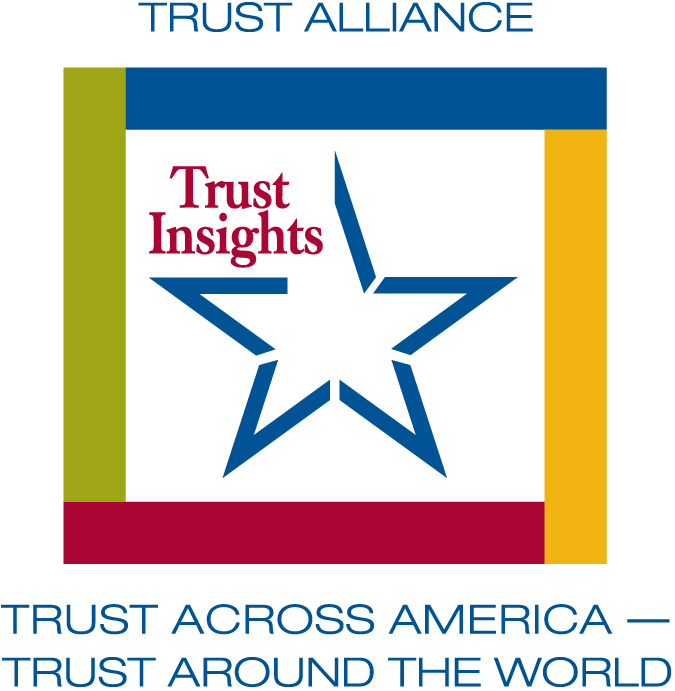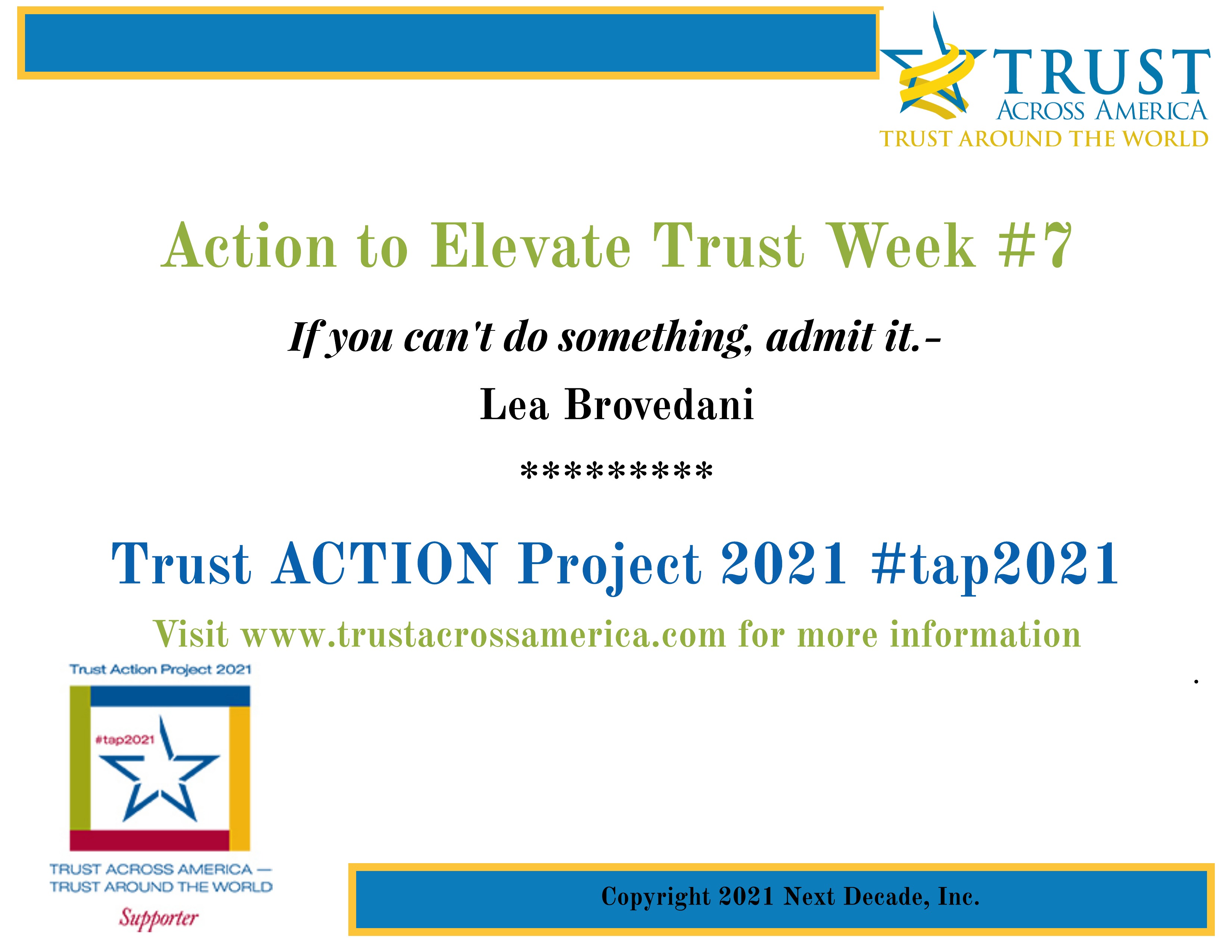 Lea, thank you for participating in our 2020 Trust Insights series. What is your trust insight?
Lea, thank you for participating in our 2020 Trust Insights series. What is your trust insight?
“It’s easier to trust someone and for others to trust you if there is genuine care – and that shows in how you listen, and how you act and behave towards others.” Lea Brovedani
Can you expand a bit on this important insight?
Most organizations will list trust as an important value but to be believed it has to be lived. What is the track record for doing what they say they will do? In an organization can you draw a direct line between their vision and mission statement and their actions? On a personal level do you believe they are authentic? Caring goes beyond compliance to the rules and speaks to the heart.
I’ve interviewed leaders, middle managers and workers in the field and I hear the same thing from all of them. “If I don’t believe that the person I am dealing with genuinely cares about me, I can’t really trust them.”
Can you provide a real life example of a trust “challenge” where your insight has been effectively applied.
An example of the affect of caring on trust… My client, Fred Barlow is the Chief Safety Officer for Reliance – a contractor in Colorado. The majority of his staff work on dangerous construction sites. When Fred took over the position he realized there wasn’t a lot of trust between the workers or between the workers and management. It took time to turn that around, and he did it by showing he cared about them as individuals. An example was in a safety class he was teaching. One of the attendees, a big macho construction worker, got a phone call in the middle of the class. When he came back, Fred could see that something was wrong. When he had the opportunity to have a conversation with him, he found out that his brother’s wife had just delivered a baby with severe health problems. Fred took the time to talk and comfort him and in doing so he went a long way in establishing a relationship of trust. This was not an isolated incident, but typical of how Fred chooses to work with his employees. The ripple affect is that the workers now listen to Fred because they know he has their best interests at heart.
Generally, do you think the global “trust” climate is improving or worsening? What actions are making it better or worse?
Overall I believe the global trust climate is worsening. Social media exacerbates divisions by feeding us information that supports our biases and validates our prejudices and connects us to people who share our beliefs. We can get a skewed view of the world that confirms whatever we believe, regardless of factual information that could change our mind. We develop trust through the facts, relationships and experiences and many of the opportunities for connection are being thwarted. This isn’t isolated to the USA. Countries around the world are experiencing a division and distrust that is in a downward spiral.
Fortunately we are drawn toward the champions who give us reasons to trust, and those who can help us look for the areas where trust can grow. The “Mr. Rogers” of the world. We can find sites that provide a full spectrum of facts, opinions and beliefs and allow us to make informed decisions. It’s the duality of the internet that gives us truth and lies and so much information that we can end up unable to discern who we can trust.
Many claim we have a crisis of trust. Do you agree?
There is a saying that goes “What we resist, persists”. To me it means we put too much focus on what we don’t want such as fear and uncertainty. If we change our focus to finding and celebrating trust, then perhaps we can start moving people, societies and institutions towards a better future where trust can grow.
Lea, how has your membership in our Trust Alliance benefitted you professionally?
I believe that Trust Across America brings credibility to all of us who are involved with the organization. You have to adhere to a high standard of ethical behavior and it brings together like-minded individuals from around the world. When I want to find out the latest research I know I can find it within the TAA group. Part of my mission and vision in life is to increase trust within the world, and being involved with this organization gives me a greater platform to do that.
Lea, thank you so much for your time and more importantly for your commitment to elevating organizational trust. What would you like our audience to know about you?
Lea Brovedani is a professional speaker and trainer who has spoken at conferences and presented her workshops on trust around the world. She is author of TRUST ME – Restore Belief & Confidence in an Uncertain World, and TRUSTED – Secret Lessons From and Inspired Leader.
Before you leave, Tap Into Trust and complete our 1 minute/1 question quiz. Find out how the level of trust in your workplace compares to hundreds of others.
Have you reviewed how our workshops are helping teams and organizations just like yours elevate trust? Schedule an online webinar today.
Did you miss our previous 2020 Trust Insights? Access them at this link.
Contact us for more information on elevating trust on your team or in your organization or email me directly: barbara@trustacrossamerica.com
Copyright 2020, Next Decade, Inc.






Recent Comments